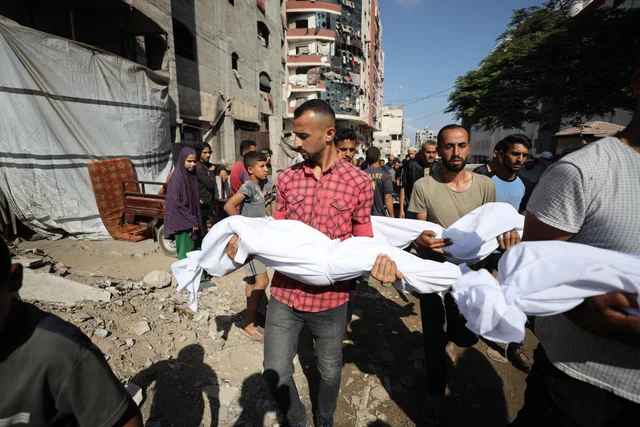The latest escalation in Gaza has left the world shaken, with nearly 300 Palestinians reported killed within just three days of heavy bombardments. This surge of violence comes at a time when Israel is facing unprecedented global scrutiny, with accusations of genocide being debated in international courts, media outlets, and diplomatic circles. The tragedy unfolding in Gaza has once again highlighted the human cost of war, the fragility of international law, and the growing rift between nations over how to respond to Israel’s ongoing military operations.
- The Current Wave of Violence in Gaza
- Global Accusations of Genocide
- The Humanitarian Impact on Civilians
- Israel’s Position and Response to Accusations
- The Role of the International Community
- Media Coverage and Narrative Battles
- Legal and Ethical Dimensions of Genocide Claims
- The Human Cost Told Through Stories
- What Happens Next?
- FAQs
- What triggered the recent escalation in Gaza?
- Why are Israel’s actions being called genocide?
- How has the international community reacted?
- What is the humanitarian situation in Gaza now?
- Could Israel face legal consequences?
- Conclusion
At the heart of this crisis is not just the staggering number of casualties, but also the broader questions of accountability, morality, and the world’s ability—or inability—to stop cycles of destruction. Families torn apart, hospitals overwhelmed, and neighborhoods flattened serve as haunting reminders of a conflict that has persisted for decades but has now reached new levels of brutality.
The Current Wave of Violence in Gaza
Reports from humanitarian organizations and health officials in Gaza confirm that airstrikes and ground assaults intensified following growing calls from international observers to investigate Israel’s military actions. The death toll of nearly 300 in three days marks one of the deadliest short-term escalations in recent memory.
Entire districts have been reduced to rubble, and rescue workers have struggled to pull survivors from the ruins of destroyed buildings. According to Gaza’s health ministry, a significant portion of the casualties include women and children, sparking renewed outrage from global human rights groups. International medical aid agencies have also warned of collapsing health services, with limited electricity, fuel shortages, and critical shortages of medicines.
Global Accusations of Genocide
The intensification of violence comes on the heels of accusations made by multiple international bodies and experts who argue that Israel’s actions may amount to genocide under international law. The term “genocide” carries immense weight, as it implies the systematic destruction of a people based on identity. Legal scholars point to the repeated targeting of civilian infrastructure, the forced displacement of entire populations, and the disproportionate use of military force as grounds for such charges.
The International Court of Justice (ICJ) has faced mounting pressure to investigate, while the United Nations has been bombarded with appeals to intervene. Several governments in the Global South, as well as advocacy groups in Europe and North America, have voiced support for these accusations. Meanwhile, Israel has vehemently denied the claims, arguing that its actions are defensive measures against militant groups launching attacks from Gaza.
The Humanitarian Impact on Civilians
Behind the political debates are real human stories of loss and survival. Parents in Gaza describe the horror of digging through rubble in search of their children. Hospitals are filled with injured civilians, many suffering from burns, fractures, and trauma injuries that doctors struggle to treat with dwindling supplies. Refugee camps, already overcrowded, have seen new waves of displaced families arriving with nothing but the clothes they were wearing when the bombs fell.
UNICEF estimates that children make up a large share of the victims, either killed directly in attacks or through secondary effects like malnutrition and lack of clean water. Aid groups warn that if humanitarian corridors are not established, the death toll could rise dramatically not only from direct attacks but also from disease, hunger, and untreated injuries.
Israel’s Position and Response to Accusations
Israel continues to justify its operations as necessary counterterrorism measures, aimed primarily at militant groups such as Hamas. Officials argue that Hamas embeds itself within civilian populations, making urban combat unavoidable. Israeli spokespersons insist that their military issues warnings prior to strikes when possible, though critics point out that in densely populated Gaza, such warnings often do little to prevent civilian deaths.
Regarding accusations of genocide, Israeli leaders have dismissed them as politically motivated and part of a broader campaign to delegitimize the state. They highlight the continued rocket fire into Israeli territory and the threat posed by militant tunnels as justification for their military actions. Still, the scale of destruction in Gaza has left many in the international community unconvinced by these arguments.
The Role of the International Community
The international response has been divided. Western powers, particularly the United States, remain largely supportive of Israel’s right to self-defense, though there is growing unease about the scale of civilian casualties. In contrast, many countries in Africa, Asia, and Latin America have called for immediate investigations into Israel’s actions.
Protests have erupted in major cities worldwide, with demonstrators demanding sanctions against Israel and an immediate ceasefire. Human rights organizations have warned that the credibility of international law is at stake, as failure to hold Israel accountable could set a dangerous precedent for future conflicts.
Media Coverage and Narrative Battles
The way this crisis is portrayed in global media has also fueled tensions. Pro-Israel outlets emphasize the security threats faced by Israeli civilians and the use of human shields by militant groups. On the other hand, Arab and international human rights-focused media highlight the devastation in Gaza, broadcasting images of destroyed homes and grieving families.
Social media platforms have amplified both perspectives, but they have also provided raw, unfiltered footage from civilians on the ground in Gaza. These videos have played a crucial role in shaping international opinion, particularly among younger audiences who distrust mainstream narratives.
Legal and Ethical Dimensions of Genocide Claims
The legal question of whether Israel’s actions amount to genocide is complex. The Genocide Convention defines the crime as acts intended to destroy, in whole or in part, a national, ethnic, racial, or religious group. Establishing intent is often the most difficult aspect, requiring not only proof of mass killings but also evidence that such acts are carried out with the deliberate goal of extermination.
Legal experts argue that repeated mass bombardments of civilian areas, combined with public statements by some Israeli leaders calling for harsh measures, could strengthen the genocide argument. Others caution that while war crimes and crimes against humanity may be easier to prove, genocide remains an exceptionally high legal threshold.
The Human Cost Told Through Stories
Numbers alone often fail to capture the scale of suffering. In Gaza, families have been wiped out in a single airstrike, leaving behind only ashes and memories. Journalists reporting from the ground have shared heart-wrenching accounts of children writing their names on their arms, hoping to be identified if they are killed. Mothers describe sleepless nights, not knowing if the next explosion will end their lives or those of their children.
These personal stories highlight the deep trauma inflicted not only on the victims but also on survivors who will carry the scars of war for generations. Trauma experts warn of a mental health crisis unfolding in Gaza, where children grow up amid constant fear, loss, and instability.
What Happens Next?
The path forward is uncertain. Calls for an immediate ceasefire have grown louder, but diplomatic efforts remain stalled. Some experts believe that global outrage could force new negotiations, while others warn that entrenched positions make peace unlikely in the near future.
If international legal proceedings move forward, Israel could face serious challenges, both diplomatically and economically. At the same time, the suffering in Gaza shows no sign of abating unless humanitarian aid is allowed to flow freely and hostilities are halted.
FAQs
What triggered the recent escalation in Gaza?
The latest escalation followed rising global accusations of genocide against Israel, which coincided with intensified military operations, including airstrikes and ground assaults, that killed nearly 300 people in three days.
Why are Israel’s actions being called genocide?
Legal experts and human rights groups argue that the scale of civilian casualties, destruction of infrastructure, and forced displacement may meet the criteria of genocide under international law, which requires intent to destroy a group in whole or in part.
How has the international community reacted?
Reactions have been divided. Western allies largely support Israel’s right to self-defense, while many countries in the Global South and human rights organizations have called for accountability and international investigations.
What is the humanitarian situation in Gaza now?
Gaza faces a catastrophic humanitarian crisis, with hospitals overwhelmed, food and water supplies dwindling, and thousands displaced. Children are among the most affected, with high casualties and long-term trauma.
Could Israel face legal consequences?
If the International Court of Justice or other bodies pursue genocide or war crimes charges, Israel could face international sanctions and diplomatic isolation. However, proving genocide is a complex and lengthy process.
Conclusion
The killing of nearly 300 people in just three days in Gaza has brought the world to a moral crossroads. At stake is not only the survival of innocent civilians but also the credibility of the international community’s commitment to human rights and justice. As accusations of genocide gain traction, the need for accountability grows stronger. Yet amid the legal and political debates, the human suffering in Gaza continues to deepen, with families mourning loved ones and communities struggling to survive under siege.
History will judge how the world responds to this moment. Whether through silence, complicity, or action, the choices made today will echo for generations. The Gaza crisis is no longer a distant conflict—it is a test of humanity’s resolve to uphold the principles of justice, dignity, and the sanctity of life.





